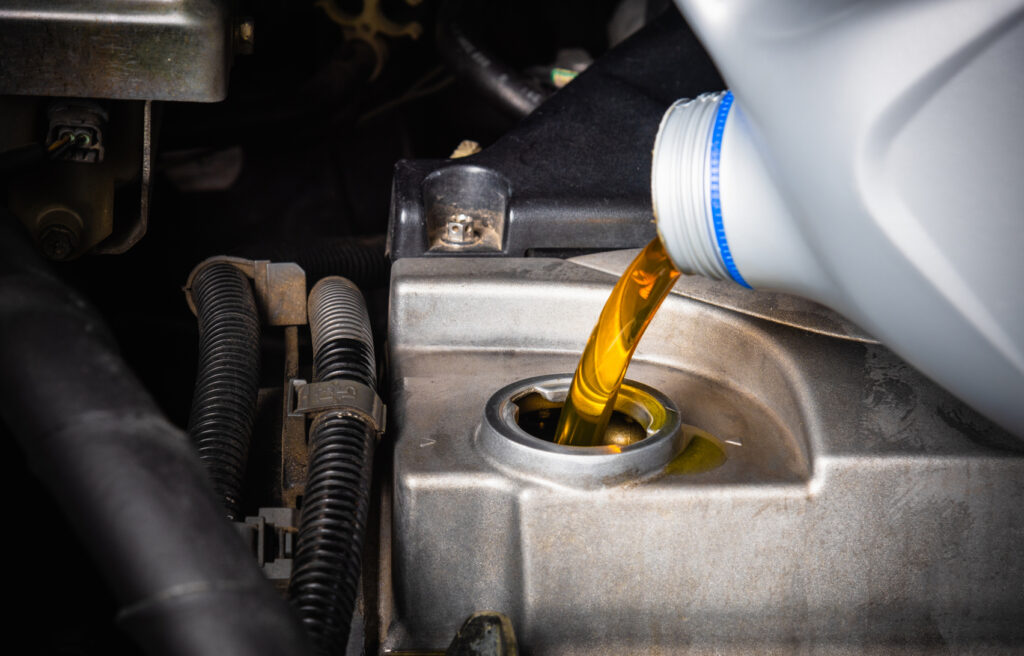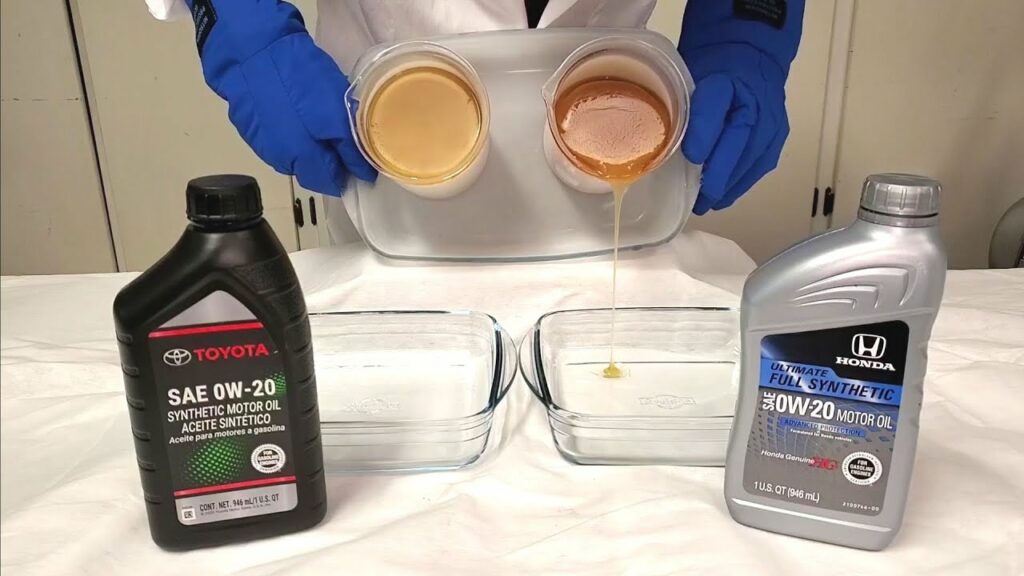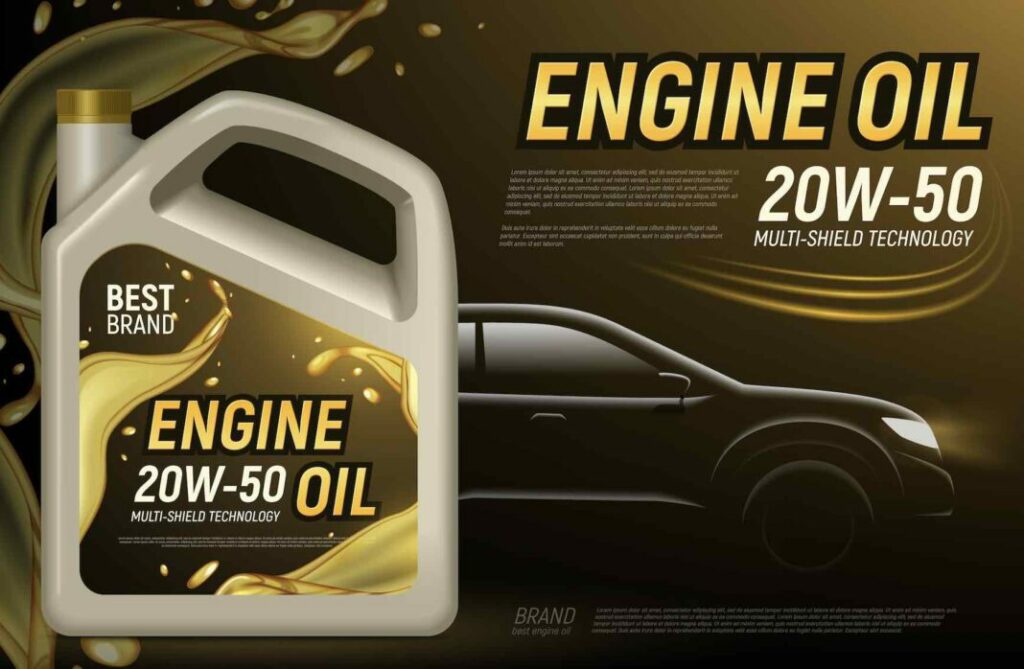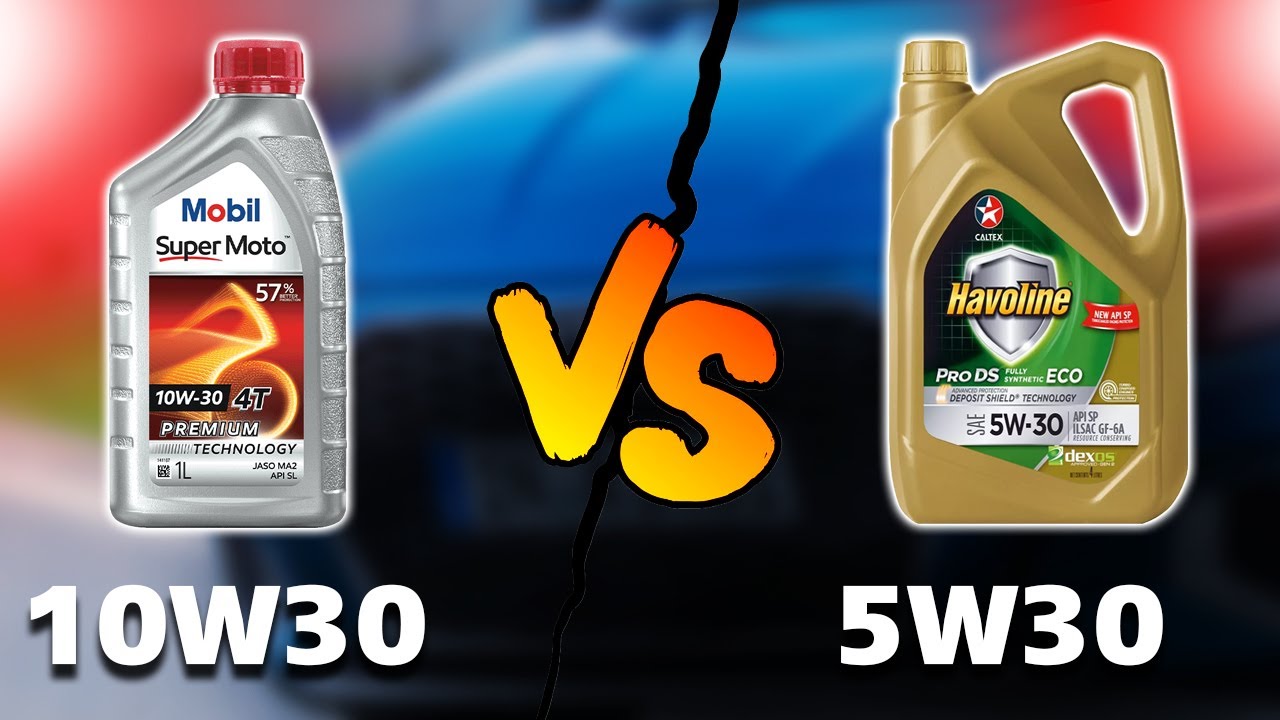Navigating the world of motor oils can feel like a labyrinth, especially when deciding between 0W-20 and 5W-20. These two contenders may seem similar, but their subtle differences could significantly impact your engine’s performance. Let’s delve into the viscosity vortex and uncover the mysteries behind these two oil types.
What Do 0w-20 and 5w-20 Mean?
To fully understand the differences between 0W20 and 5W20 oils, it’s important to know what the numbers represent. These numbers indicate the oil’s weight and viscosity, or thickness. The letter “W” signifies that both types of oil are suitable for use in cold temperatures. The first number before the “W” represents the oil’s thickness in cold temperatures, while the number after the “W” indicates its thickness at operating temperature.
For instance, 0W20 oil has a viscosity of 0 in cold and 20 in operating temperatures, while 5W20 oil has a viscosity of 5 in cold and 20 in operating temperatures. As the temperature increases, the oil thins out, becoming less viscous, and at low temperatures, it thickens, becoming more viscous.
Although both oils are ideal for use in cold regions, they can also perform in hotter conditions, although not under extremely hot temperatures. Thus, choosing between 0W20 and 5W20 oils depends on factors such as the engine design, the manufacturer’s recommendations, and the environment. Understanding these nuances can help you make an informed decision about which oil is best for your vehicle.
What Is Viscosity?

Viscosity is a measure of a fluid’s resistance to flow. In motor oil, viscosity refers to how thick or thin the oil is and how easily it flows through an engine’s internal components. A high-viscosity oil will be thicker and resist flow more than a low-viscosity oil.
The Society of Automotive Engineers (SAE) has established a standardized scale for measuring viscosity, which is denoted by a number followed by the letter “W” (which stands for “winter”) in the case of motor oils. The lower the number before the “W,” the better the oil’s cold-weather performance. Using motor oil with the correct viscosity for your engine is important to ensure proper lubrication and protection against wear and tear.
What is the Difference Between 5w20 and 0w20?

The difference between 5w-20 and 0w-20 motor oils may seem minor, but it can significantly impact your engine’s performance and longevity. Understanding the differences between these two types of motor oil can help you decide which is best for your vehicle. The differences are explained in the following points:
Viscosity Differences
The viscosity of a motor oil refers to its thickness or resistance to flow. The lower the viscosity of the oil, the easier it flows. Viscosity is denoted by a number followed by the letter “W,” which stands for “winter.” 5w20 and 0w20 motor oils have different viscosity ratings, which can affect their performance in different weather conditions.
In general, 0w20 oil is best suited for use in cold weather conditions, where it can provide quick and easy lubrication to the engine during cold starts. Its low viscosity allows it to flow easily and quickly throughout the engine, providing protection against wear and tear even in the coldest weather. However, 0w20 oil may not provide adequate protection against wear and tear in warmer temperatures, as it may become too thin and less effective at lubricating engine parts.
On the other hand, 5w20 oil is slightly thicker at low temperatures, which allows it to provide better protection against wear and tear during high-stress conditions. Its higher viscosity allows it to flow more slowly and cling more tightly to engine parts, reducing the risk of engine damage during high-speed or heavy-load driving. However, in cold weather conditions, 5w20 oil may not flow as easily or quickly as 0w20 oil, which could increase the risk of engine damage during cold starts.
Grade Differences
Motor oil is classified into different grades based on its viscosity and other performance factors. The grade of the oil is usually denoted by a combination of letters and numbers, such as 0w20 or 5w20. The grade of motor oil can affect its performance in different driving conditions.
The “0” in 0w20 and “5” in 5w20 refer to the oil’s viscosity rating at low temperatures. However, the second number in the grade, which is “20” in both cases, refers to the oil’s viscosity rating at high temperatures. Both 0w20 and 5w20 oils have the same viscosity rating at high temperatures, which means they provide the same level of protection against engine wear and tear in hot weather conditions.
Performance Differences
The performance of 0w20 and 5w20 motor oils can vary depending on the driving conditions and the engine type. 0w20 oil is specially formulated to perform well in cold weather conditions. Its low viscosity rating allows it to flow easily and lubricate the engine components during cold starts. This helps to protect the engine from wear and tear and prolong its lifespan. 0w20 oil is also known for its fuel efficiency and can improve gas mileage.
5w20 oil, on the other hand, has a slightly higher viscosity rating at low temperatures, which makes it thicker and slower to flow than 0w20 oil. However, it offers better protection against engine wear and tear in high-stress driving conditions, such as towing heavy loads or driving at high speeds. It can also provide better protection against engine deposits and sludge buildup.
Fuel Economy Differences
Fuel economy is an important consideration for many drivers, as it can affect the overall cost of operating a vehicle. The type of motor oil you use can impact fuel economy. 0w20 motor oil is known for its fuel efficiency and can improve gas mileage by reducing engine friction and improving engine performance. It has a lower viscosity rating than 5w20 oil, which means it flows more easily and requires less energy to circulate through the engine.
5w20 oil has a slightly higher viscosity rating than 0w20 oil, which means it requires slightly more energy to circulate through the engine. This can result in lower fuel efficiency than 0w20 oil. However, the difference in fuel economy between 0w20 and 5w20 oil is generally minimal and may not be noticeable to most drivers.
Price Differences
The price of 0w20 and 5w20 motor oils can vary depending on the brand and the retailer. However, in general, 0w20 oil is more expensive than 5w20 oil. This is because 0w20 oil requires more advanced technology and special additives to achieve its low viscosity rating, which increases its manufacturing cost. Additionally, due to its relatively recent introduction to the market, 0w20 oil is not as widely available as 5w20 oil, which can also drive up its price. On the other hand, 5w20 oil has been used for several decades and is produced by many manufacturers, increasing competition and keeping costs relatively low.
Types of 0w-20 Oil

The following are some examples of 0w-20 oil:
- Mobil 1 0W-20 Advanced Fuel Economy: This fully synthetic oil is designed to provide excellent fuel economy and engine protection. It uses advanced technology to reduce friction and wear and is suitable for use in gasoline engines.
- Castrol Edge 0W-20 Advanced Full Synthetic: This high-performance oil uses a blend of synthetic base oils and advanced additives to provide maximum engine protection. It is suitable for use in gasoline engines and offers improved fuel economy.
- Valvoline SynPower 0W-20 Full Synthetic: This synthetic oil offers excellent protection against engine wear, deposits, and sludge. It is formulated to provide improved fuel economy and is suitable for use in gasoline engines.
- Pennzoil Platinum 0W-20 Full Synthetic: This advanced oil uses PurePlus technology, which converts natural gas into a high-quality synthetic base oil. It offers excellent wear protection and improved fuel economy and is suitable for use in gasoline engines.
- Royal Purple 0W-20 Synthetic Motor Oil: This premium synthetic oil offers superior wear protection, improved fuel economy, and reduced engine deposits. It uses a proprietary blend of synthetic base oils and advanced additives and is suitable for use in gasoline engines.
Types of 5w-20 Oil

The following are some examples of 0w-20 oil:
- Mobil 1 5W-20 Advanced Full Synthetic: This fully synthetic oil is designed to provide excellent engine protection and fuel economy. It uses advanced technology to reduce friction and wear and is suitable for use in gasoline engines.
- Pennzoil Platinum High Mileage 5W-20 Full Synthetic: This advanced oil is specifically formulated for high-mileage engines and offers superior wear protection and engine cleanliness. It is suitable for use in gasoline engines.
- Castrol GTX 5W-20 Conventional Motor Oil: This conventional oil is designed to provide reliable engine protection and performance. It is suitable for use in gasoline engines and offers excellent engine cleanliness.
- Valvoline MaxLife 5W-20 Synthetic Blend: This synthetic blend oil is specifically formulated for high-mileage engines and offers superior wear protection and engine cleanliness. It is suitable for use in gasoline engines.
- Royal Purple HMX 5W-20 High Mileage Synthetic Motor Oil: This synthetic oil is designed for high-mileage engines and offers superior wear protection and improved engine cleanliness. It uses advanced additives and synthetic base oils and is suitable for use in gasoline engines.
Related: 15W-40 Engine oil: Everything You need to Know
FAQs
What does the “0w” or “5w” mean in motor oil?
The “w” in motor oil stands for “winter” and refers to the oil’s cold weather viscosity. The number before the “w” (i.e. 0w or 5w) indicates the oil’s viscosity rating at low temperatures. The lower the number, the better the oil’s cold-weather performance.
What’s the difference between 0w20 and 5w20 oil?
The main difference between 0w20 and 5w20 oil is their cold weather viscosity rating. 0w20 oil is thinner than 5w20 oil at low temperatures, which allows it to flow more easily and provides better engine protection during cold starts. However, 0w20 oil may not be suitable for use in all engines and may be more expensive than 5w20 oil.
Can I use 0w20 oil instead of 5w20 oil?
It depends on your vehicle’s manufacturer’s recommendations. Some newer vehicles require the use of 0w20 oil for optimal performance and fuel efficiency. However, not all engines are designed to use 0w20 oil, so it’s important to consult your owner’s manual or a certified mechanic to determine the best oil for your engine.
How often should I change my oil?
The recommended oil change interval varies by vehicle make and model and driving conditions. Generally, most manufacturers recommend changing the oil every 5,000 to 7,500 miles or every six months, whichever comes first. However, this can vary depending on your driving type, such as city versus highway driving, towing heavy loads, or driving in extreme temperatures.
Can I mix different types of oil?
While it’s generally not recommended to mix different types of oil, such as synthetic and conventional oils, it is possible in some cases. However, it’s important to note that mixing different types of oil can affect the oil’s performance and may cause engine damage. It’s best to consult a mechanic or refer to the oil manufacturer’s guidelines before mixing oils.
Conclusion
Choosing the right motor oil is essential for your engine’s optimal performance and longevity. Factors such as viscosity, type, and brand should be considered when selecting motor oil. Motor oils with lower viscosity, such as 0w20 and 5w20, are recommended for modern engines and offer improved fuel efficiency and protection. Choosing a motor oil that meets the manufacturer’s specifications for your vehicle is also important.
Regularly changing your motor oil with the appropriate type and brand can help prolong the life of your engine and improve its overall performance. Keeping up with routine maintenance and selecting the right motor oil is essential for the longevity and reliability of your vehicle.




